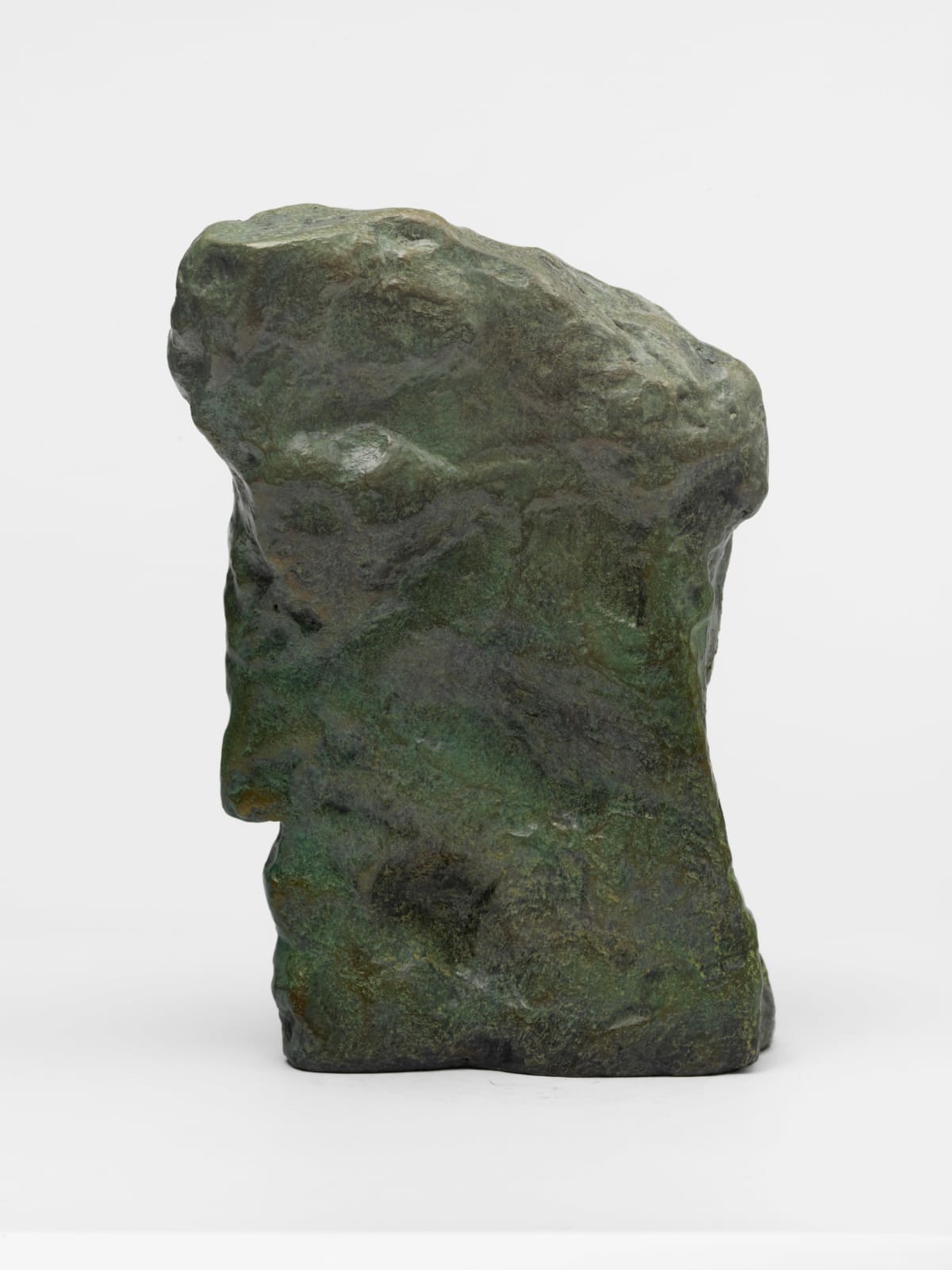William Tucker RA British, b. 1935
Maud, 2023
Bronze
32.5 x 13 x 22 cm
12 3/4 x 5 1/8 x 8 5/8 in
12 3/4 x 5 1/8 x 8 5/8 in
Edition 1 of 6
Further images
In what he terms 'imaginative reconstructions', this new series of portrait heads includes depictions of writers, fictional characters, and individuals that William Tucker has encountered throughout his lifetime. These sculptural...
In what he terms 'imaginative reconstructions', this new series of portrait heads includes depictions of writers, fictional characters, and individuals that William Tucker has encountered throughout his lifetime. These sculptural portraits date back to the end of Covid at a time when mask wearing was common, obscuring people’s identity. Inspired by the question of identity and the specificity of the subject in a portrait, Tucker embarked on new body of works to explore it in a physical sense. With regards to the process of making this body of work, Tucker reveals that the individual works were all originally part of one enormous plaster of a horse – a subject he had previously explored. By cutting it up and making new work out of it, he is symbolically moving on from the past. He also alludes to assemblage and a certain anthropomorphism, sometimes referred to by scientists as pareidolia, which involves a willingness to suspend disbelief to allow figurative forms to take shape: “I was really attracted to these pieces; I started to put them together and these heads started to appear”. Tucker describes this as “a vocabulary of chunks” which, once assembled, seemed to want to become someone, developing into a character.
Maud Gonne MacBride (Irish: Maud Nic Ghoinn Bean Mhic Giolla Bhríghde; 21 December 1866 – 27 April 1953) was an Irish republican revolutionary, suffragette, and actress. Of Anglo-Irish descent, she was drawn to Irish nationalism by the suffering of those evicted in the Land Wars. Gonne ardently campaigned for Home Rule and later for the republic proclaimed in 1916. In the 1930s, she co-founded the Social Credit Party, advocating for C. H. Douglas's distributive programme. Gonne's prominent role extended beyond politics; she was renowned as the muse and enduring love interest of Irish poet W. B. Yeats. Her commitment to Irish independence, activism for social reform, and influential relationship with Yeats mark her as a significant figure in Irish history and culture.
Maud Gonne MacBride (Irish: Maud Nic Ghoinn Bean Mhic Giolla Bhríghde; 21 December 1866 – 27 April 1953) was an Irish republican revolutionary, suffragette, and actress. Of Anglo-Irish descent, she was drawn to Irish nationalism by the suffering of those evicted in the Land Wars. Gonne ardently campaigned for Home Rule and later for the republic proclaimed in 1916. In the 1930s, she co-founded the Social Credit Party, advocating for C. H. Douglas's distributive programme. Gonne's prominent role extended beyond politics; she was renowned as the muse and enduring love interest of Irish poet W. B. Yeats. Her commitment to Irish independence, activism for social reform, and influential relationship with Yeats mark her as a significant figure in Irish history and culture.
Provenance
From the artistExhibitions
William Tucker: Portraits, Pangolin London, 13 March - 20 April 2023Join our mailing list
* denotes required fields
We will process the personal data you have supplied in accordance with our privacy policy (available on request). You can unsubscribe or change your preferences at any time by clicking the link in our emails.





